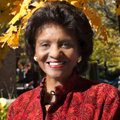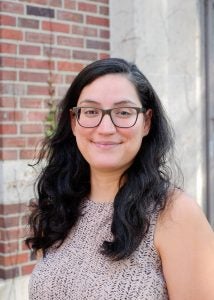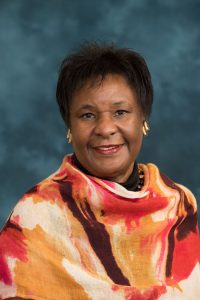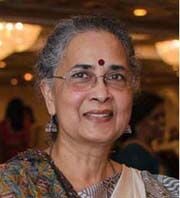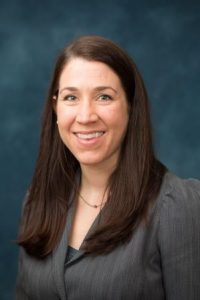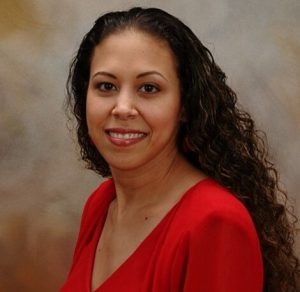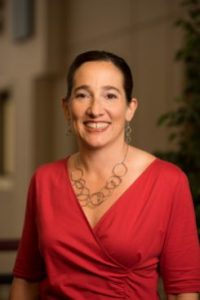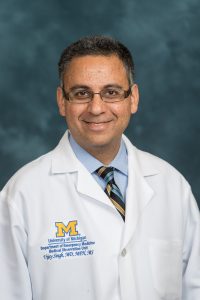Day 1:
Laying the Foundation and Framing the Discussion: Development, Trauma, Technology
Welcome and Introduction
9am-9:30am
Committee members will be speaking briefly about the need for trauma-informed discussions during the conference as well as setting out the conference guidelines, including inclusivity and inter-group dialogue.
Royster Harper, Vice President for Student Life, is the University of Michigan executive officer who leads a dynamic team dedicated to student learning and the development of the whole student in a diverse campus community. She is responsible for the collective services, programs and facilities that support all aspects of campus life, leadership and personal growth for more than 41,000 undergraduate and graduate students at U-M. An alumna of the University of Michigan (B.A. and M.A.), and doctorate from the University of Pennsylvania, Dr. Harper has served in her current role since 1999. Previously, she served as the Senior Associate Vice President and Dean of Students, recognized for her passionate advocacy and support for the student community and for the success of the individual. In earlier positions, as Assistant to the Vice President for Academic Affairs and Assistant to the Dean of the College of Literature, Science and the Arts, she led efforts to facilitate better integration of student experiences inside and outside of the classroom and to improve the quality of student life. She has been involved in a number of community activities, serving on the Ann Arbor Board of Education, the Board of Directors of the Ann Arbor Hands-on Museum and the Executive Board of the Ann Arbor branch of the National Association for the Advancement of Colored People. She has been actively involved in a number of professional associations and is on the board of several major organizations.
Development through Adolescence and Emerging Adulthood, Part I
9:30am-10:30am
Jillian E. Hardee is an Assistant Professor in the Department of Psychiatry at the University of Michigan. Her research focuses on the neurobiological factors that are integral to risk for substance use and addiction in adolescents and emerging adults, using longitudinal and cross-sectional neuroimaging. She uses functional magnetic resonance imaging to characterize neural-based sex differences underlying both risk for substance use and substance use itself. She has a Ph.D. in Neuroscience from West Virginia University.
Sara McClelland is an Assistant Professor at University of Michigan in the Departments of Women’s Studies and Psychology. Her research focuses on issues related to sex education in schools, reproductive rights, HIV prevention, and sexual health. Her research program focuses on studies of the intimate imagination and the expectations individuals develop for what they deserve to feel, experience, and avoid in their intimate lives. Her work has recently been featured in Peggy Orenstein’s best-selling book, Girls & Sex, which relied on McClelland’s theory of “intimate justice” to develop research on young women and emerging sexual norms. Recent research has included studies on the sexual health concerns of women diagnosed with Stage IV breast cancer, studies on the effects of abstinence-only-until-marriage sex education on young adults with racial and sexual minority identities, and studies that guide psychologists to better account for the role of gender and racial stereotypes in self-reports of sexual health and well-being. She received her PhD in Psychology (2009), was a postdoctoral scholar in the Michigan Society of Fellows (2009-2012), and recently received the Mary Walsh Roth Teaching the Psychology of Women Award (APA Div 35) and the Michele Alexander Early Career Award for Scholarship and Service (SPSSI; APA Div 9).
Development through Adolescence and Emerging Adulthood, Part II
11am-12pm
Dr. Peggy C. Giordano is Distinguished Research Professor Emeritus at Bowling Green State University. Giordano has conducted research on intimate social relationships of adolescents and young adults, with a specific interest in how extra-familial relationships (peers, romantic partners) influence behavior and well-being. She has directed a number of longitudinal studies, including the Toledo Adolescent Relationships Study, an investigation that focuses on the lives and relationship experiences of a large, diverse sample of respondents originally interviewed as adolescents, and followed up four additional times as they have navigated the transition to adulthood. This study draws on a mixed-method approach (quantitative analyses are supplemented with in-depth interviews with a subset of respondents who participated in the larger study) to illuminate the multiple ways in which social network experiences affect positive and problem outcomes. Recent analyses have documented similarities and differences in the ways in which young women and men navigate these formative relationships, and identified precursors and consequences of violence and other forms of conflict within dating relationships. Giordano is a Fellow of the American Society of Criminology whose research has been funded by the National Institute of Child Health and Human Development, the National Science Foundation, the National Institute of Mental Health, and the National Institute of Justice. Results of analyses conducted with co-investigators Wendy D. Manning and Monica A. Longmore have been published in journals such as American Sociological Review, Social Forces, American Journal of Sociology, Criminology, and the Journal of Research on Adolescence.
Yasamin Kusunoki is an Assistant Professor in the Department of Systems, Populations and Leadership at the School of Nursing and a Faculty Associate at the Population Studies Center (PSC) and Social Research Center (SRC) at the Institute for Social Research. Prior to her current appointment, Dr. Kusunoki was an Assistant Research Scientist at PSC and SRC and an NICHD postdoctoral fellow at PSC. She received her Ph.D. in Public Health from the University of California, Los Angeles, with additional training in social demography and sociology. Dr. Kusunoki’s research focuses on understanding sources of gender, racial/ethnic, and socioeconomic disparities in reproductive health behaviors and outcomes during adolescence and emerging adulthood, particularly the role of young people’s social contexts such as their intimate relationships, families, neighborhoods, and schools. Current research projects include the influence of the multiple dynamic social contexts on young women’s risk of unintended pregnancy, the correlates and consequences of intimate partner violence (IPV), the trajectories of sexual violence (SV) victimization and perpetration among adolescents in middle and high school, and the attitudes and behaviors related to SV perpetration among emerging adults. She is also conducting translational research funded by the Michigan Institute for Clinical and Health Research (MICHR), the Injury Prevention Center, and PSC on the IPV and reproductive coercion (RC) experiences of young women seeking services in reproductive health clinic settings to inform the development of an intervention aimed at reducing IPV and RC.
Lunch: Sexual Assault Prevention and Awareness Center presentation (SAPAC)
12pm-1:15pm
Rebecca Avella graduated from the University of Michigan in 2018 with a BA in Women’s Studies and Community Action and Social Change. She has been an active volunteer for the Sexual Assault Prevention and Awareness Center since the fall of 2014. As a member of the Consent Outreach and Relationship Education (CORE) program she facilitated workshops on communication, consent, and healthy relationships in order to promote a culture of safety, non-violence, and respect on the university’s campus. Every fall Rebecca participated as a facilitator for the Relationship Remix program which aims to reach every incoming freshman with a workshop on sexual health, consent, and communication. In 2016 she was a member of the committee that organized “Activating our Campus: A Collective of Anti-Violence Student Activists”, a statewide conference attended by students dedicated to eradicating violence in their campuses and communities. Rebecca has been admitted to the University of Michigan School of Social Work and plans to earn her MSW in Community Organizing. She hopes her knowledge and passion for primary prevention will be represented in her future work.
Jennifer Osetek is the Program Manager for Volunteer Training & Leadership Development at the University of Michigan’s Sexual Assault Prevention & Awareness Center (SAPAC). She received her Master of Arts degree in Social Foundations and Community Education with a concentration in Teaching for Diversity & Democracy from the department of Teacher Education in the College of Education at Eastern Michigan University. Jennifer received her undergraduate degree at the University of Michigan in English and Sociology. Jennifer is also on-call on SAPAC’s crisis line and provides outreach services to survivors at the hospital as part of the Sexual Assault Response Team (SART). She is the Advisor for the Survivor Empowerment & Ally Support (SEAS) and the Consent, Outreach, & Relationship Education (CORE) volunteer programs at SAPAC. Jennifer manages the yearly 22-hour New Volunteer Training, as well as continuing education for return volunteers (SAPAC currently has around 170 student volunteers across the three volunteer programs) to teach students how to effectively engage in their peer-lead volunteer and leadership work to provide sexual assault prevention education to students on UM’s campus. Jennifer also leads the year long leadership curriculum for our six student leader employees who lead SAPAC’s three volunteer programs. Additionally Jennifer serves on the First Year Experience’s Relationship Remix Leadership Team.
Kaaren M. Williamsen, PhD, is Director of the Sexual Assault Prevention and Awareness Center at the University of Michigan where provides direction and leadership to the University’s sexual and intimate partner violence response, education and prevention efforts across campus.Previously she was the first full-time Title IX Coordinator at Swarthmore College where she created a coordinated response to sexual misconduct, oversaw policy development, created a comprehensive sexual violence prevention program, and worked closely with students to develop administrator and student partnerships related to sexual violence prevention. Prior to Swarthmore, Kaaren worked at Carleton College where she founded and directed the Gender and Sexuality Center. As part of her work in building and leading the center, she created innovative sexual violence prevention programs including peer education, comprehensive sexuality education, men’s groups, survivor support, new student orientation and student-led no-credit courses on healthy sexuality. She also created institutional support services for gay, lesbian, bisexual and transgender students, including peer mentor program, support groups, campus education and professional development for faculty and staff. Kaaren also served as a Deputy Title IX Coordinator for Prevention and was a key member of the Title IX Lead Team at Carleton, which oversaw all efforts toward sexual violence prevention and campus response. In addition, she coordinated and trained the Sexual Misconduct Support Advisers and the Community Board on Sexual Assault which heard sexual misconduct cases. Before founding the Gender and Sexuality Center, Kaaren worked in residential life and in LGBT advisor roles at Carleton as well as two other Minnesota colleges and universities. Kaaren earned her B.A. in Philosophy with honors from Gustavus Adolphus College, an MS in Women’s Studies from Minnesota State Mankato, and her M.A. in Counseling and Student Personnel Psychology from University of Minnesota. In 2017 she completed her PhD in Organizational Leadership, Policy, and Development at the University of Minnesota with a dissertation on the limitations of the student conduct response to sexual misconduct and the possibilities of restorative justice. Kaaren is also co-chair of Campus PRISM (Promoting Restorative Initiatives for Sexual Misconduct) and is a restorative justice facilitator trainer with the Skidmore Project on Restorative Justice.
Current Interventions and Need for Trauma-Informed Care
1:30pm-3pm
Dr. Cleopatra Howard Caldwell is Professor and Chair of the Department of Health Behavior and Health Education and Director of the Center for Research on Ethnicity, Culture, and Health (CRECH) at the School of Public Health, University of Michigan. She is also a Faculty Associate with the Program for Research on Black Americans (PRBA) at the Institute for Social Research and an Adjunct Professor in the Department of Psychology at the University of Michigan. As a social psychologist with expertise in psychosocial and environmental factors influencing the health and well-being of Black populations, her research includes both intervention and basic research involving survey research techniques with adults, adolescents and families. She also has expertise in conducting community-based participatory research (CBPR), developing academic-community partnerships to design and evaluate health interventions for Black youth and their family. Specific examples include the NICHD/NIH funded Parenting and Men’s Health Study, the CDC funded Fathers and Sons Evaluation Project, and the Ruth Mott Foundation funded Fathers and Sons Physical Activity and Nutrition Program. She has published in a number of areas including the influence of social relationships and social identities on the health and well-being of Black adolescents, the role of paternal support, racial discrimination, and racial identity attitudes as risk or protective factors for adolescent risky behaviors and fatherhood as a context for understanding men’s health. Further, Dr. Caldwell has extensive experience conducting research to understand health risk behaviors and mental health of ethnically diverse adolescents, including African American and Caribbean Black youth.
Hillary Baldwin Steller, LMSW graduated from the University of Michigan School of Social Work in 2010. She is certified in Sensorimotor Psychotherapy (Level 1) and trained in experiential therapy at the University of Hawaii, in 2009. After working at the Family Assessment Clinic, and the Family Learning Institute she started working as a clinician in direct practice in 2012. Hillary has been teaching at the U of M School of Social Work since 2015 and currently is working for Savas Consulting and has a private practice in Ann Arbor.
Susan Cole is the director of the Trauma and Learning Policy Initiative (TLPI),a joint program of Harvard Law School and the non-profit children’s rights organization Massachusetts Advocates for Children (MAC). At Harvard she holds a joint appointment as Education Law Clinic Director and Lecturer on Law and is a Senior Project Director at MAC. Ms. Cole’s work is based on research at the intersection of psychology, education and law that links traumatic experiences to a host of learning, relational and behavioral difficulties at school. She oversees TLPI’s work in schools and its representation of families in the Education Law Clinic to inform ongoing policy and educational activities. She holds a J.D from Northeastern University, a Masters in Special Education from the University of Oregon, and a BA from Boston University. Prior to becoming a lawyer she taught in the Watertown MA and Woodstock CT public schools – experiences that continuously inform her current work.
Gender, Technology, and Violence
3:30pm-5pm
L. Monique Ward is an Arthur F. Thurnau Professor of Psychology at the University of Michigan, where she teaches courses on Developmental Psychology, and on Children, Adolescents, and the Media. She received her B.A. from Yale University and her Ph.D. from UCLA and has been on faculty at the University of Michigan for more than 20 years. Dr. Ward’s research focuses on media effects on gender development and sexual socialization, with particular attention to effects of sexual objectifying media, effects for young women, and effects for Black youth. She has published more than 60 articles in peer-reviewed journals, including Developmental Psychology, Psychological Bulletin, Media Psychology, Journal of Adolescence, and Psychology of Women Quarterly. Dr. Ward served as a member of the APA Task Force on the Sexualization of Girls and currently serves on the editorial board of 5 scholarly journals. She is the 2017 recipient of The Distinguished Leader for Women in Psychology Award from the APA Committee on Women in Psychology.
Quyen Ngo is a Research Assistant Professor in the Department of Emergency Medicine’s Injury Center at the University of Michigan. She is a fully-licensed Clinical Psychologist with expertise in substance use, violence and trauma, contemplative practice, and technology-assisted psychological interventions. Dr. Ngo’s current research includes a career development award from the National Institute on Alcohol Abuse and Alcoholism.
Dr. André Brock is an interdisciplinary scholar, with a master’s degree in English and Rhetoric from Carnegie Mellon University and a PhD in Library and information Science from the University of Illinois at Urbana-Champaign. His scholarship includes published articles on racial representations in videogames, black women and weblogs, whiteness, blackness, and digital technoculture, as well as innovative and groundbreaking research on Black Twitter. His article “From the Blackhand Side: Twitter as a Cultural Conversation” challenged social science and communication research to confront the ways in which the field, in his words, preserved “a color-blind perspective on online endeavors by normalizing Whiteness and othering everyone else” and sparked a conversation that continues, as Twitter in particular continues to evolve as a communication platform. The author of numerous journal articles and book chapters, Dr. Brock’s writings have appeared in prominent journals like Media, Culture, and Society, New Media and Society, Journal of Broadcast and Electronic Media, and Information, Communication and Society. Dr. Brock is currently working on a book titled Distributed Blackness: African American Cybercultures.
#InMyWords: Why America needs a social movement for survivors’ justice
Poster Reception and Heavy Hors d’oeuvres
5:30pm-7pm
Sofie Karasek is a progressive movement builder and organizer.When she was a 19-year-old at UC Berkeley, she co-founded the national non-profit End Rape on Campus, where she and a band of scrappy student survivors transformed campus rape from a PR blip to a national scandal, brought Yes Means Yes into the mainstream, and were branded as a “well-funded Death Star”. She was also featured in The Hunting Ground film and Lady Gaga’s 2016 Academy Awards performance. Sofie now trains other young organizers to harness the power of storytelling to ignite public support for progressive change. She is passionate about re-imagining justice for sexual violence, transforming voting from a privilege to a right, and preventing the climate crisis from washing away the home she grew up in. (And convincing other Americans that Danish salty licorice is the best).
Day 2: Intersections of Law, Policy, and Practice
Student Experiences of Reporting Campus Sexual Assault
9am-10:15pm
Fabiana Diaz graduated from the University of Michigan – Ann Arbor with a degree in International Studies. During her time on campus she was an advocate and activist for women’s rights. She has been featured on HBO VICE: “Campus Cover-Up,” contributed to the book We Believe You: Survivor’s of Campus Sexual Assault Speak Out, and was recognized as Student of The Year 2016 by her school’s newspaper for her work on campus and continued advocacy for survivors. Before joining The Pivot Group team, she was the staff assistant at She Should Run, a non-partisan organization focused on expanding the pool of women running for public office. As a Latina immigrant, she recognizes the importance of representation in the media and government as a vehicle to incite social change and progress. She aspires to one day run for office.
Kendal Rosalik is a second-year medical student at Michigan State University’s College of Osteopathic Medicine. Her interest in medicine began as a way to integrate her passion for science with her dedication to serving other people. She believes that the best medical practices take into account every aspect of the patient’s being–maximizing the body’s capacity for self-regulation and self-healing. The foundation of her doctor-patient relationships will be empowering patients to be active and equal members of their healthcare team. Her focus on healing, restoration, empowerment, and agency also fuels her advocacy for restorative justice implementation. She believes that for some survivors of sexual violence, these measures may offer the best chance of conflict resolution while allowing them to maintain their autonomy. Kendal is currently researching cytomegalovirus reactivation in bone marrow transplant patients at the Henry Ford Hospital in Detroit. She is an active member and former vice president of The Student’s National Medical Association and an active member of Medical Students for Choice at her campus. In her free time, she enjoys weight-lifting, supporting other survivors of sexual violence, practicing makeup artistry, drawing, and championing women in medicine. Kendal was a co-coordinator at the Sexual Assault Prevention and Awareness Center at the University of Michigan where she also received the Molecular, Cellular, and Developmental Biology Research Fellowship in 2013. Kendal holds a Bachelor’s of Science in Cellular and Molecular Biology with Honors from the University of Michigan and plans to graduate with her Doctorate of Osteopathic Medicine in 2020.
The Policy Context: Past, Present, and Future
10:45am-12pm
Pamela Heatlie is an Associate Vice Provost for Academic and Faculty Affairs, Senior Director of the Office for Institutional Equity and Title IX Coordinator at the University of Michigan. Her work focuses on creating a welcoming, respectful and inclusive campus environment. Pam’s particular areas of expertise include civil rights law and related investigations, DEI initiatives, and legal and compliance issues related to affirmative action. Prior to her current position, Pam worked as in-house legal counsel to public universities for fifteen years. Her legal practice has been wide-ranging, with a particular emphasis on employment law and student-related legal issues. Pam has taught for a number of years and is currently an adjunct lecturer at the University of Michigan Law School, where she teachings “Title IX and Higher Education.” She also speaks nationally on topics within her areas of expertise.
Samuel Bagenstos, the Frank G. Millard Professor of Law, specializes in constitutional and civil rights litigation. From 2009 to 2011, he was a political appointee in the U.S. Department of Justice, where he served as the principal deputy assistant attorney general for civil rights, the No. 2 official in the Civil Rights Division. His accomplishments included the promulgation of the 2010 Americans with Disabilities Act regulations—the first comprehensive update of those regulations since they were first promulgated in 1991—and the reinvigoration of the Civil Rights Division’s enforcement of the U.S. Supreme Court’s decision in Olmstead v. L.C., which guarantees people with disabilities the right to live and receive services in the most integrated setting appropriate. He led the negotiations of significant Olmstead settlements with the states of Delaware and Georgia, which guarantee appropriate, community-based services to thousands of people with disabilities. He also personally argued major cases in federal district courts and courts of appeals. Professor Bagenstos frequently consults with civil rights organizations and remains an active appellate and U.S. Supreme Court litigator in civil rights and federalism cases. He has argued four cases before the Supreme Court, including Young v. United Parcel Service, 135 S. Ct 1338 (2015), which established new protections for pregnant workers, and United States v. Georgia, 546 U.S. 151 (2006), which upheld, as applied to his client’s case, the constitutionality of Title II of the Americans with Disabilities Act. Professor Bagenstos also has testified before Congress on several occasions, including in support of the Fair Pay Restoration Act, the ADA Amendments Act, the Employment Non-Discrimination Act, and the Convention on the Elimination of All Forms of Discrimination Against Women, as well as on the application of the ADA to advancing technology and the problem of mental illness in prisons.
Caroline Bettinger-López is a Professor of Clinical Legal Education and Director of the Human Rights Clinic at the University of Miami School of Law. She also serves as an Adjunct Senior Fellow at the Council on Foreign Relations and is a recipient of a Roddenberry Fellowship for her COURAGE in Policing Project (COURAGE=Community Oriented and United Responses to Address Gender Violence and Equality). Professor Bettinger-López recently completed a two-year term in the Obama Administration, where she served as the White House Advisor on Violence Against Women, a senior advisor to Vice President Joe Biden, and a member of the White House Council on Women and Girls. At the White House, her responsibilities included co-chairing the White House Task Force to Protect Students from Sexual Assault, chairing the U.S. Government Inter-Agency Working Group on Violence Against Women, co-coordinating the Sexual Assault Kit Initiative, and developing the cabinet-level North American Working Group on Violence Against Indigenous Women and Girls (whose inaugural meeting in October 2016 included the participation of all attorneys general and indigenous affairs cabinet members from the U.S., Canada, and Mexico). Professor Bettinger-López’s scholarship, practice, and teaching concern international human rights law and policy advocacy, violence against women, gender and race discrimination, immigrants’ rights, and clinical legal education. She focuses on the implementation of human rights norms at the domestic level, principally in the United States and Latin America. Professor Bettinger-López regularly litigates and engages in other forms of advocacy before the Inter-American Human Rights system, the United Nations, federal and state courts, and legislative bodies.
Gender Violence, Racism, and The Build up of a Prison Nation: The Case For Feminist Abolition Politics
1pm-2:30pm
Beth E. Richie is Head of the Department of Criminology, Law and Justice and Professor of African American Studies at The University of Illinois at Chicago. The emphasis of her scholarly and activist work has been on the ways that race/ethnicity and social position affect women’s experience of violence and incarceration, focusing on the experiences of African American battered women and sexual assault survivors. Dr. Richie is the author of Arrested Justice: Black Women, Violence and America’s Prison Nation (NYU Press, 2012) which chronicles the evolution of the contemporary anti-violence movement during the time of mass incarceration in the United States and numerous articles concerning Black feminism and gender violence, race and criminal justice policy, and the social dynamics around issues of sexuality, prison abolition, and grassroots organizations in African American Communities. Her earlier book Compelled to Crime: the Gender Entrapment of Black Battered Women, is taught in many college courses and is cited in the popular press for its original arguments concerning race, gender and crime. Dr. Richie’s work has been supported by grants from The Robert Wood Johnson Foundation, The Ford Foundation, and The National Institute for Justice and The National Institute of Corrections. She has been awarded the Audre Lorde Legacy Award from the Union Institute, The Advocacy Award from the US Department of Health and Human Services, and The Visionary Award from the Violence Intervention Project and the UIC Woman of the Year Award. Dr. Richie is a board member of The Institute on Domestic Violence in the African Community, The National Network for Women in Prison, A Call To Men and a founding member of INCITE!: Women of Color Against Violence. In 2013 she was awarded an Honorary Degree from the City University of New York Law School and in 2014 she was appointed as a Sr. Advisor to the NFL to work on their domestic violence and sexual assault prevention program.
Concurrent Sessions
2:45pm-3:45pm
Practice: Restorative Justice
David Karp, PhD, is Professor of Sociology and Director of the Project on Restorative Justice at Skidmore College in Saratoga Springs, New York. His current scholarship focuses on restorative justice in community and educational settings. He was the recipient of the 2010 Donald D. Gehring Award from the Association for Student Conduct Administration for his work on campus restorative justice. David has published more than 100 academic papers and six books, including The Little Book of Restorative Justice for Colleges and Universities (2013), Wounds That Do Not Bind: Victim-Based Perspectives on the Death Penalty (2006), and The Community Justice Ideal (1999). David is on the Board of Directors for the National Association for Community and Restorative Justice. He has previously served as Associate Dean of Student Affairs, Chair of the Department of Sociology, and Director of the Program in Law and Society.
Carrie Landrum, M.A., has been facilitating restorative practices for over 10 years at the University of Michigan Office of Student Conflict Resolution (OSCR). At OSCR she serves as Assistant Director for Adaptable Conflict Resolution, Educational Outreach, Strategic Partnerships, Training and Assessment. When the 2013 University of Michigan Policy On Sexual Misconduct by Students permitted restorative practices to be implemented (in limited circumstances) under the Informal Resolution Options section of the policy, Carrie was the facilitator tasked to lead these out. She continues to be the primary person to lead out restorative justice practices permitted under the 2018 University of Michigan Policy and Procedures on Student Sexual and Gender-Based Misconduct and Other Forms of Interpersonal Violence. Carrie’s academic background includes studies and training in: international studies (Emory University); dispute resolution and conflict transformation (Wayne State University); and peacebuilding, trauma healing, and restorative practices (Eastern Mennonite University).
Elise Lopez, MPH, is the Coordinator of Sexual Assault Prevention Programs in the Mel and Enid Zuckerman College of Public Health at the University of Arizona. Elise has worked primarily on programs that focus on the design, implementation, and evaluation of interventions related to adolescent substance abuse, trauma-informed care, sexual health, and sexual violence. She is currently a project manager for two federally-funded sexual violence prevention and response projects at MEZCOPH, and serves as the site preceptor for undergraduate students who are interested in sexual assault research and policy.
Kaaren M. Williamsen, PhD, is Director of the Sexual Assault Prevention and Awareness Center at the University of Michigan where provides direction and leadership to the University’s sexual and intimate partner violence response, education and prevention efforts across campus. Previously she was the first full-time Title IX Coordinator at Swarthmore College where she created a coordinated response to sexual misconduct, oversaw policy development, created a comprehensive sexual violence prevention program, and worked closely with students to develop administrator and student partnerships related to sexual violence prevention. Prior to Swarthmore, Kaaren worked at Carleton College where she founded and directed the Gender and Sexuality Center. As part of her work in building and leading the center, she created innovative sexual violence prevention programs including peer education, comprehensive sexuality education, men’s groups, survivor support, new student orientation and student-led no-credit courses on healthy sexuality. She also created institutional support services for gay, lesbian, bisexual and transgender students, including peer mentor program, support groups, campus education and professional development for faculty and staff. Kaaren also served as a Deputy Title IX Coordinator for Prevention and was a key member of the Title IX Lead Team at Carleton, which oversaw all efforts toward sexual violence prevention and campus response. In addition, she coordinated and trained the Sexual Misconduct Support Advisers and the Community Board on Sexual Assault which heard sexual misconduct cases. Before founding the Gender and Sexuality Center, Kaaren worked in residential life and in LGBT advisor roles at Carleton as well as two other Minnesota colleges and universities. Kaaren earned her B.A. in Philosophy with honors from Gustavus Adolphus College, an MS in Women’s Studies from Minnesota State Mankato, and her M.A. in Counseling and Student Personnel Psychology from University of Minnesota. In 2017 she completed her PhD in Organizational Leadership, Policy, and Development at the University of Minnesota with a dissertation on the limitations of the student conduct response to sexual misconduct and the possibilities of restorative justice. Kaaren is also co-chair of Campus PRISM (Promoting Restorative Initiatives for Sexual Misconduct) and is a restorative justice facilitator trainer with the Skidmore Project on Restorative Justice.
Research: Studying Campus Sexual Misconduct Policies
Elizabeth A. Armstrong is a sociologist with research interests in sexuality, gender, culture, organizations, social movements, and higher education. She has written on undergraduate sexual cultures and the production of sexual risk on campuses. With Sandra Levitsky, she is engaged in a study of university responses to student sexual misconduct. Professor Armstrong joined the Department of Sociology and the Organizational Studies Program at the University of Michigan in 2009. Before that, she held a faculty appointment in the Department of Sociology at Indiana University. She earned her M.A. and Ph.D. degrees in Sociology at the University of California-Berkeley and a B.A. in Sociology and Computer Science from the University of Michigan
Sandra Levitsky is an Associate Professor at the University of Michigan. She holds a Ph.D. in Sociology from the University of Wisconsin and a J.D. from the University of Minnesota. Her research focuses on American social policy, political mobilization, and the relationship between law and social change. Her recent book, Caring for Our Own: Why There Is No Political Demand for New American Social Welfare Rights, examines one of the most rapidly growing sources of unmet social welfare needs in the United States: long-term care. The book draws on a multi-method qualitative study of over 220 family caregivers, social workers, and policy advocates in Southern California to explain why American families don’t view unmet needs as the basis for demands for long-term care entitlements. Levitsky’s current research has shifted to education reform: she is conducting a study of the politics of public preschool, seeking to understand the remarkable success of reform advocates in expanding the state’s role in funding early childhood education in a time of growing privatization and budgetary cutbacks in education. She is also working on a large, NSF-funded study of university responses to the changing legal environment around Title IX and campus sexual assault.
Kamaria B. Porter is doctoral candidate in the Center for the Study of Higher and Post-Secondary Education at the University of Michigan. After graduating from the University of Notre Dame with a BA in History with and a concentration in US Labor History, Kamaria worked as a community organizer with the Industrial Areas Foundation in Chicago. While earning her Masters in Higher Education at Loyola University Chicago she became active in sexual assault prevention and support programs as a rape crisis counselor. Her research interests include racial and gender inequalities in higher education, especially institutional response to sexual assault, graduate education, and faculty experiences.
Charlotte Hoppen is an undergraduate student at the University of Michigan majoring in Organizational Studies and Sociology, with a Subplan in Law, Justice, and Social Change. She worked on the University Responses to Sexual Assault on Campus project for three semesters through different research cohorts. On the project, she was a coder and worked on evaluating the Sexual Misconduct Policies, Annual Security Reports, and websites of colleges and universities across the United States. Charlotte also does volunteer and activism work for Take Back the Night/University Students Against Rape, which is a non-profit organization on campus and aims to support and empower survivors of sexual assault. She is a Junior Student Leader and the Organization Outreach Coordinator for Take Back the Night. Additionally, she volunteers as a Panhellenic Peer Educator for Sexual Violence Education and Empowerment. Charlotte received numerous hours of advocacy training for survivors and now serves as a confidential resource and information presenter for survivors and advocates in the Greek Life community.
Kia Schwert is a Bachelors of Arts student attending the University of Michigan-Ann Arbor and holds an Associates in Science and Arts Degree from Northwestern Michigan Community College. She will earn her B.A. in Sociology and Women’s Studies with a concentration in Law, Justice and Social Change. Kia is a research assistant for the project University Responses to Sexual Misconduct at the University of Michigan. She has also completed an independent research project examining religion as a possible variable for institutional compliance. The conclusion of this Project was a poster presented at an annual research symposium. Her budding research interests fall at the Intersection of Social Policy and Practice.
Research: The Next Generation of Campus Climate Surveys
William Axinn is a research professor at the Institute for Social Research, professor in the Department of Sociology and a faculty affiliate at the Center for South and Southeast Asian Studies, with a courtesy appointment as a professor of public policy at the Ford School. He is a sociologist and demographer whose research interests center on fertility and family demography. Axinn’s program of research addresses the relationships among social change, the social organization of families, intergenerational relationships, marriage, cohabitation, fertility and mental health in the United States and Nepal. He also studies the interrelationships between population and the environment and new techniques for the collection of social science data. His research on sexual assault derives from both his expertise in life course and intergenerational models of other aspects of sexual experience (contraceptive use to avert pregnancies, courtship, cohabitation and marriage) and his expertise in survey data collection methods (longitudinal surveys, application of responsive survey design, and measurement of sensitive experiences).
Kevin Swartout, Ph.D. is an Associate Professor of Psychology and Public Health at Georgia State University in Atlanta, GA. His primary, overarching research questions regard the social determinants of violence: How do individuals’ experiences with violence and victimization unfold across time and across social contexts? What are the social-contextual risk and protective factors for violence that might inform prevention and intervention programming? Much of his recent research has focused on violence against women—sexual violence, more specifically. Dr. Swartout currently chairs the Administrator-Researcher Campus Climate Collaborative (ARC3), which curated and released a campus climate survey on sexual misconduct in the fall of 2015 that has already has been implemented at over 200 U.S. colleges and universities, in addition to universities in Europe and the Middle East.
Practice: Intersectional Identities and the Challenge of Policy and Response
Nadia Bazzy MA, LLMFT serves as Director of Multi-Ethnic Student Affairs at the University of Michigan. She previously served as the Interim Director of the Sexual Assault Prevention and Awareness Center (SAPAC) and Assistant Director at the Office of Student Conflict Resolution (OSCR) at the University of Michigan, with primary responsibility for OSCR’s role in the University of Michigan Policy & Procedures on Student Sexual & Gender-Based Misconduct & Other Forms of Interpersonal Violence. Nadia’s areas of specialty include: peacebuilding, restorative justice, and trauma healing. She received her post graduate education from Oakland University in Couple and Family Counseling and is a licensed Marriage and Family Therapist with a private practice. Nadia also holds a M.A. in Conflict Transformation and Peacebuilding from Eastern Mennonite University with a concentration in psycho-social recovery. Nadia has lectured and consulted nationally for over 15 years on various topics including conflict, peacebuilding, reconciliation, and relationships.
Will Sherry is a student affairs social worker currently serving as the Director of the University of Michigan Spectrum Center. Will focuses on diversity and inclusion strategic planning, organizational development, supervision, and leadership of campus-wide educational programming. Will is a 2007 graduate of the University of Michigan School of Social Work where he focused on Interpersonal Practice with Children, Youth and Families. He joined the School of Social Work after completing a Bachelor’s Degree in Sociology from the College of Wooster. Prior to his work with the Spectrum Center Will worked as an Adolescent HIV and AIDS Consultant and Grant Writer for a Detroit-based non-profit organization and served as a case manager working with youth in residential foster care.
Concurrent Sessions
4pm-5pm
Mandatory Reporting
Kathryn Holland is an assistant professor in the Department of Psychology and the Women’s & Gender Studies Program at the University of Nebraska. She received her PhD in Psychology and Women’s Studies from the University of Michigan. Her research examines formal support systems for sexual assault survivors in higher education.
Kathy Hagenian is the Executive Policy Director for the Michigan Coalition to End Domestic and Sexual Violence (MCEDSV). Ms. Hagenian is widely respected for her leadership in legislative and policy initiatives, expertise in protocol and curriculum development, and service on numerous state-wide and national multi-disciplinary task forces, committees and boards. She regularly serves as faculty for a broad array of professionals regarding issues of intervention and prevention of domestic violence, dating violence, sexual assault and stalking. Throughout her over 30 years of experience in the movement to end violence against women, Ms. Hagenian has been recognized for her commitment to survivor empowerment and to ensuring that the experiences of survivors and advocates continue to be at the forefront of the work.
is an Associate Vice Provost for Academic and Faculty Affairs, Senior Director of the Office for Institutional Equity and Title IX Coordinator at the University of Michigan. Her work focuses on creating a welcoming, respectful and inclusive campus environment. Pam’s particular areas of expertise include civil rights law and related investigations, DEI initiatives, and legal and compliance issues related to affirmative action. Prior to her current position, Pam worked as in-house legal counsel to public universities for fifteen years. Her legal practice has been wide-ranging, with a particular emphasis on employment law and student-related legal issues. Pam has taught for a number of years and is currently an adjunct lecturer at the University of Michigan Law School, where she teachings “Title IX and Higher Education.” She also speaks nationally on topics within her areas of expertise.
Community Matters Programs at the University of Michigan: A Peer Education Approach
Allie Harte is the Associate Director for the First Year Experience in Student Life at the University of Michigan. After receiving her Master of Social Work from the University of Michigan, she implemented organizational development and talent management work in the Office of the Vice President for Student Life prior to joining the First Year Experience team. She has worked with Change it Up!, a skills-based program on bystander intervention and microaggressions, since its first year of implementation. Today, She is responsible for required and optional programming for incoming first-year students, including Community Matters programs, in collaboration with partners. These programs include online courses on alcohol and other drug use education and prevention and sexual assault prevention, as well as in-person workshops Relationship Remix and Change it Up!
Laura McAndrew, MPH is the sexual health educator for Wolverine Wellness within University Health Service at the University of Michigan. Her work focuses on college sexual health, especially in the areas of primary sexual violence prevention/healthy relationships skills and sexual stigma reduction to promote mental well-being and engagement in sexual health-promoting behaviors. At Wolverine Wellness, Laura coordinates individual wellness services such as Anonymous Rapid HIV Testing, Motivational Interviewing, and individual sexual health education and support, as well as group and community-level interventions including peer education, community events, and safer sex item availability for the U-M campus. She is on the leadership team for Relationship Remix, U-M’s required healthy relationships workshop for incoming first-year and transfer undergraduates. Prior to her work in Wolverine Wellness, Laura held public health and community engagement positions in health care and non-profit organizations. A proud Michigander, Laura earned her Master of Public Health and BA in Psychology from the University of Michigan.
Research: Perpetration
Yasamin Kusunoki is an Assistant Professor in the Department of Systems, Populations and Leadership at the School of Nursing and a Faculty Associate at the Population Studies Center (PSC) and Social Research Center (SRC) at the Institute for Social Research. Prior to her current appointment, Dr. Kusunoki was an Assistant Research Scientist at PSC and SRC and an NICHD postdoctoral fellow at PSC. She received her Ph.D. in Public Health from the University of California, Los Angeles, with additional training in social demography and sociology. Dr. Kusunoki’s research focuses on understanding sources of gender, racial/ethnic, and socioeconomic disparities in reproductive health behaviors and outcomes during adolescence and emerging adulthood, particularly the role of young people’s social contexts such as their intimate relationships, families, neighborhoods, and schools. Current research projects include the influence of the multiple dynamic social contexts on young women’s risk of unintended pregnancy, the correlates and consequences of intimate partner violence (IPV), the trajectories of sexual violence (SV) victimization and perpetration among adolescents in middle and high school, and the attitudes and behaviors related to SV perpetration among emerging adults. She is also conducting translational research funded by the Michigan Institute for Clinical and Health Research (MICHR), the Injury Prevention Center, and PSC on the IPV and reproductive coercion (RC) experiences of young women seeking services in reproductive health clinic settings to inform the development of an intervention aimed at reducing IPV and RC.
Quyen Ngo is a Research Assistant Professor in the Department of Emergency Medicine’s Injury Center at the University of Michigan. She is a fully-licensed Clinical Psychologist with expertise in substance use, violence and trauma, contemplative practice, and technology-assisted psychological interventions. Dr. Ngo’s current research includes a career development award from the National Institute on Alcohol Abuse and Alcoholism.
Kevin Swartout, Ph.D. is an Associate Professor of Psychology and Public Health at Georgia State University in Atlanta, GA. His primary, overarching research questions regard the social determinants of violence: How do individuals’ experiences with violence and victimization unfold across time and across social contexts? What are the social-contextual risk and protective factors for violence that might inform prevention and intervention programming? Much of his recent research has focused on violence against women—sexual violence, more specifically. Dr. Swartout currently chairs the Administrator-Researcher Campus Climate Collaborative (ARC3), which curated and released a campus climate survey on sexual misconduct in the fall of 2015 that has already has been implemented at over 200 U.S. colleges and universities, in addition to universities in Europe and the Middle East.
Day 3: Innovations, Campus, Community, and Beyond
Ignite Talks
9:15am-10:15am
Reshma Jagsi, M.D., D.Phil., is Professor and Deputy Chair in the Department of Radiation Oncology at Michigan Medicine and Director of the Center for Bioethics and Social Sciences in Medicine. In addition to her medical training at Harvard Medical School, she served as a fellow in the Center for Ethics at Harvard University and completed her doctorate in Social Policy at Oxford University as a Marshall Scholar. Dr. Jagsi is board-certified in Radiation Oncology by the American Board of Radiology. She is active in organized medicine and currently serves as the Chair of the Research Committee of the Radiation Oncology Institute, as the Chair of ASCO’s Ethics Committee, and as a member of the Steering Committee of the AAMC Group on Women in Medicine and Science. She is the author of over 100 publications in peer-reviewed journals, serves as Senior Editor of the International Journal of Radiation Oncology, Biology, Physics, and is on the editorial boards of the Journal of Clinical Oncology and JAMA Oncology. Dr. Jagsi’s medical research focuses on improving the quality of care received by breast cancer patients, both by advancing the ways in which breast cancer is treated with radiation and by advancing the understanding of patient decision-making, cost, and access to appropriate care. Her social scientific research includes research into issues of bioethics arising from cancer care and research regarding gender issues, including studies of women’s representation in the senior ranks of academic medicine, barriers to their advancement, and interventions intended to increase their representation.
Brian Heilman is a Senior Research Officer at Promundo, where his work focuses on eliminating harmful masculine norms, preventing all forms of gender-based violence, and achieving broader gender equality and social justice in the United States and around the world. Brian is a co-author of the 2017 State of the World’s Fathers and 2016 State of America’s Fathers reports, the lead author of The Man Box study on harmful effects of rigid masculine norms in the U.S., U.K., and Mexico, and a co-author of multiple reports using International Men and Gender Equality Survey (IMAGES) data. Brian has extensive program and research experience in South Asia, Sub-Saharan Africa, and the Middle East, and is deeply engaged as a sexual violence prevention educator in Minnesota. He holds a BA in English from Saint John’s University and an MA in Law and Diplomacy from the Fletcher School at Tufts University.
Nicole Denson is a proud, native Detroiter and is currently the Associate Director of Advocacy Services for the WC SAFE Program. Nicole’s dedication, critical thinking, creativity, and community partnerships have helped build and strengthen WC SAFE’s Counseling and Advocacy Program. WC SAFE can proudly say it is the most successful and largest stand-alone sexual assault program in Michigan. Nicole’s areas of expertise include providing crisis intervention, counseling and advocacy to survivors of trauma, human trafficking, and crime victims. Nicole is most proud of her work within the organization Alternative For Girls. Nicole provided resources throughout Detroit for women and men who participated in and or exiting commercial sex work. Nicole has over 10 years of experience working with survivors of sexual assault and domestic violence with an extensive background working within the criminal justice system. Nicole has advocated in creating systems change and activism within Michigan State University’s campus, Oakland County Police Stations and Courts, Detroit Police Department, 36th District Court, Third Circuit Court, Wayne County Prosecutor’s Office, and Frank Murphy Hall of Justice. Nicole is currently a member of the Wayne County Sexual Assault Kit Task Force. Nicole is a graduate of Michigan State University School of Psychology and is currently pursuing her Master’s Degree at Capella University in Public Administration with a specialization in Nonprofit Management and Leadership. Her passion includes advocating for equality for the rights of trauma survivors, women, children, and the LGBTQ community. Nicole believes that all survivors of trauma deserve equal rights, respect, dignity, and safety.
Shamita Das Dasgupta is a co-founder of Manavi, an organization in the United States that focuses on violence against women in the South Asian community. She has taught at Rutgers University and NYU Law School. Shamita’s published books are: The Demon Slayers and Other Stories: Bengali Folktales (1995), A Patchwork Shawl: Chronicles of South Asian Women in America (1998), Body Evidence: Intimate Violence Against South Asian Women in America (2007), Mothers for Sale: Women in Kolkata’s Sex Trade(2009) and Globalization and Transnational Surrogacy in India: Outsourcing Life(2014). She has written several articles, book chapters, monographs, and reports on violence against women. Shamita has served on several national boards in the U.S., including being appointed by New Jersey’s Governor to the NJ Domestic Violence Fatality and Near Fatality Review Board. In addition to various awards, her work has received wide recognition in national and international media. In her spare time, Shamita writes mystery stories in her mother tongue, Bengali.
Carmen Wargel, LMSW is a community organizer and educator on the topic of domestic and sexual violence. She has engaged in education and conversation related to domestic violence and sexual assault with over 5000 people since 2006 on topics such as Recognizing and Responding to Domestic Violence, Healthy Relationships/Healthy Communities, Healthcare Responses to Domestic and Sexual Violence, Consent, Understanding LGBT Abuse and more. Ms. Wargel serves the chair of the Macomb Community Domestic Violence Council, a multidisciplinary organization in Macomb County that seeks to promote healthy relationships through community, conversation, and education. She is a founding organizer of the Michigan Network of Bi, Trans, Lesbian, Gay and Queer Survivors of Abuse and co-chair of the Royal Oak School District Health Advisory Board. She serves on the boards of Mothering Justice and the Michigan Coalition to End Domestic and Sexual Violence.
Suellyn Scarnecchia is a Clinical Law Professor at the University of Michigan Law School. She has taught in the Human Trafficking Clinic since January 2013. Before that, she taught for 15 years in the UM Child Advocacy Law Clinic, served as the Dean of the University of New Mexico School of Law, and was Vice President and General Counsel of the University of Michigan. She is a graduate of Northwestern University and the University of Michigan Law School.
Dr. Kathryn Clancy is an Associate Professor of Anthropology at the University of Illinois, with additional affiliations in the Program for Evolution, Ecology, and Conservation, the Beckman Institute for Advanced Science & Technology, and Women and Gender in Global Perspective. She received her doctorate in Anthropology from Yale University, and a joint Honors bachelors degree in Biological Anthropology and Women’s Studies from Harvard University. Clancy’s research integrates life history, evolutionary medicine, and feminist biology to contest clinical definitions of normal in women’s health. Clancy’s main field sites are the Mogielica Human Ecology Study Site in rural Poland, where she has worked since 2002, and the Girls Adventures in Math, Engineering, and Science (GAMES) summer camp in Urbana, Illinois, a longitudinal research project in its fifth year. Clancy’s critical research on the culture of science has also received widespread attention. She and her colleagues have empirically demonstrated the continued problem of sexual harassment and assault in the field sciences, astronomy, and planetary science, and she serves on the National Academy of Sciences Committee to Address Sexual Harassment in the Sciences. Clancy was named one of Nature’s 10 most influential scientists in 2013. She has a significant online presence, with a popular Twitter feed at @KateClancy, a website and blog at www.kateclancy.com, and Period Podcast, a podcast about women’s health in its second season. She has two daughters, two pets, and a roller derby addiction.
Concurrent Sessions
10:30am-12pm
Athletics and Gender-based Violence Interventions
Greg Harden, M.S.W, is in his 23rd year with the University of Michigan Athletic Department, currently serving as Executive Associate Athletic Director Harden Student Athlete Health & Welfare. In this position, Greg oversees Athletic Medicine, Performance Psychology & Athletic Counseling, Strength & Conditioning-Olympic Sports, Sports Performance, and Equipment Operations. Greg’s affiliation with the U-M Athletic Department started in 1986 when he began working as a staff consultant and student athlete personal development program counselor. Greg provides individual student athletes with personal support, and adult learning opportunities for their teams. Coaches, sport administrators, and university personnel rely on his knowledge and expertise in responding to the needs of students involved in athletics, and in managing crisis situations. Greg was featured on a segment of 60 Minutes Sports where correspondent, James Brown, profiled “Michigan’s Secret Weapon” and the impact Greg has on the student-athletes who seek him. Greg has been instrumental in aiding the Athletic Department in the design and implementation of the student and staff development strategies. His collaborative style and efforts have helped to strengthen the Athletic Department’s connection with the larger university community. Greg is a licensed social worker and received both his BGS and Master’s degrees from the University of Michigan.
Rachel Haas is the Managing Director at NoMore, which is a national campaign that works on both domestic violence and sexual assault. They have partnered extensively with the NFL and produced highly visible ads that aired during the SuperBowl with NFL players saying NoMore to many myths about sexual assault and domestic violence and urging men to saying no more to the behaviors and beliefs that support gender based violence.
Brian Heilman is a Senior Research Officer at Promundo, where his work focuses on eliminating harmful masculine norms, preventing all forms of gender-based violence, and achieving broader gender equality and social justice in the United States and around the world. Brian is a co-author of the 2017 State of the World’s Fathers and 2016 State of America’s Fathers reports, the lead author of The Man Box study on harmful effects of rigid masculine norms in the U.S., U.K., and Mexico, and a co-author of multiple reports using International Men and Gender Equality Survey (IMAGES) data. Brian has extensive program and research experience in South Asia, Sub-Saharan Africa, and the Middle East, and is deeply engaged as a sexual violence prevention educator in Minnesota. He holds a BA in English from Saint John’s University and an MA in Law and Diplomacy from the Fletcher School at Tufts University.
Innovations in Gender-based Violence Intervention
Nicole Denson is a proud, native Detroiter and is currently the Associate Director of Advocacy Services for the WC SAFE Program. Nicole’s dedication, critical thinking, creativity, and community partnerships have helped build and strengthen WC SAFE’s Counseling and Advocacy Program. WC SAFE can proudly say it is the most successful and largest stand-alone sexual assault program in Michigan. Nicole’s areas of expertise include providing crisis intervention, counseling and advocacy to survivors of trauma, human trafficking, and crime victims. Nicole is most proud of her work within the organization Alternative For Girls. Nicole provided resources throughout Detroit for women and men who participated in and or exiting commercial sex work. Nicole has over 10 years of experience working with survivors of sexual assault and domestic violence with an extensive background working within the criminal justice system. Nicole has advocated in creating systems change and activism within Michigan State University’s campus, Oakland County Police Stations and Courts, Detroit Police Department, 36th District Court, Third Circuit Court, Wayne County Prosecutor’s Office, and Frank Murphy Hall of Justice. Nicole is currently a member of the Wayne County Sexual Assault Kit Task Force. Nicole is a graduate of Michigan State University School of Psychology and is currently pursuing her Master’s Degree at Capella University in Public Administration with a specialization in Nonprofit Management and Leadership. Her passion includes advocating for equality for the rights of trauma survivors, women, children, and the LGBTQ community. Nicole believes that all survivors of trauma deserve equal rights, respect, dignity, and safety.
David Garvin served as the Interim CEO/President of Catholic Social Services of Washtenaw County and also serves as the Chief Operating Officer of Catholic Social Services of Washtenaw County in Ann Arbor, Michigan where he founded, supervised and directed the Alternatives to Domestic Aggression Program (ADA Mr. Garvin has been directly involved in the anti-domestic violence movement since 1986 when he founded the ADA Program. Mr. Garvin is a co-founder and current Chair of the Batterer Intervention Services Coalition of Michigan (BISCMI). Mr. Garvin was selected to serve as the co-chair of the Michigan Governor’s Taskforce on creating standards for batterer intervention programs. Mr. Garvin has conducted trainings, consultations, conferences, workshops, inservices around the country and has been featured on local, state and national television, in magazines, professional journals and newspapers. Mr. Garvin has been a member of the Ann Arbor Domestic Violence Coordinating Board and the St. Joseph Mercy Hospital Domestic Violence Advisory Council. Mr. Garvin served on the Michigan Judicial Institute PPO CD-I Advisory Council and was the Chair of the Ypsilanti Domestic Violence Coordinating Board.
Lisa Young Larance, MSW, LMSW is a practitioner-scholar whose curricula, publications, trainings, and practical work focus on meeting the needs of marginalized women and their families. Ms. Larance is the founder of two innovative community-based programs providing intervention, advocacy, and support for women who have used force in their relationships: Vista and RENEW. She is also the co-creator of the prison-based Meridians Program for Incarcerated Women. Ms. Larance’s consulting work includes providing technical assistance and training for United States Air Force practitioners and Harmony House’s Nurturing Hearts Program implementation in Hong Kong, China. She is the former Domestic Violence Intervention Services Coordinator at Catholic Social Services of Washtenaw County and is currently a doctoral student at the University of Michigan’s joint doctoral program in Social Work and Sociology. Ms. Larance’s doctoral research focuses on the experiences of women who have had contact with court ordered anti-violence programming.
Barbara A. Niess-May is the Executive Director of SafeHouse Center, a supportive service and social action agency which provides help to over 5000 Washtenaw County, MI residents who are impacted by domestic violence and sexual assault annually through its 50 bed emergency shelter and its counseling and advocacy programs. Barbara has worked toward supporting survivors of sexual assault and domestic violence since 1994 in various micro- and macro-system capacities. This has included individual advocacy, agency management as well as state wide level advocacy and support. In addition to these activities, Barbara has also be en very involved in legislative work and has provided expert testimony in a variety of venues, including various levels of court and at the state and federal legislative level. She is also involved in her community in a variety of ways as a member of Rotary International, Justice For our Neighbors, Southern Michigan Orienteering Club and as an adjunct lecturer at Eastern Michigan University. Barbara has served on several boards and committees, is a member of several national honor fraternities and is active in her church. Barbara holds two master’s degrees from the University of Arkansas at Little Rock, one in Public Administration and one in Social Work. Her hobbies include time with family, cooking, adventure racing, running, mountain biking and kayaking.
Centering Culture in Gender-based Violence Interventions
Dr. Michelle Munro-Kramer is an Assistant Professor at the University of Michigan School of Nursing. Her program of research focuses on gender-based violence, particularly sexual violence, and reproductive health. She is interested in the primary prevention of violence as well as comprehensive care of vulnerable populations within domestic and international contexts. Her research projects approach these topics using a trauma-informed and patient-centered lens. She has conducted field work in Liberia, Ghana, Ethiopia, and Zambia. She is currently working on a gender-based violence prevention program on university campuses in Ghana. She is also in the process of adapting a web-based application to address healthy relationships and sexual violence on university campuses in the USA.
Sarah Rominski’s research focuses on reproductive health in sub-Saharan Africa, particularly Ghana. Specifically, Dr. Rominski studies reasons for contraceptive discontinuation amongst Ghanaian women, identifying barriers to safe abortion care, and is currently part of a team adapting the sexual violence prevention program used at the University of Michigan to a college campus in Ghana, which is the first sexual violence prevention program undertaken at a Ghanaian university.
Dasgupta, Shamita Das is a co-founder of Manavi, an organization in the United States that focuses on violence against women in the South Asian community. She has taught at Rutgers University and NYU Law School. Shamita’s published books are: The Demon Slayers and Other Stories: Bengali Folktales (1995), A Patchwork Shawl: Chronicles of South Asian Women in America (1998), Body Evidence: Intimate Violence Against South Asian Women in America (2007), Mothers for Sale: Women in Kolkata’s Sex Trade(2009) and Globalization and Transnational Surrogacy in India: Outsourcing Life(2014). She has written several articles, book chapters, monographs, and reports on violence against women. Shamita has served on several national boards in the U.S., including being appointed by New Jersey’s Governor to the NJ Domestic Violence Fatality and Near Fatality Review Board. In addition to various awards, her work has received wide recognition in national and international media. In her spare time, Shamita writes mystery stories in her mother tongue, Bengali.
Merkeb Yohannes joined the Michigan Coalition to End Domestic and Sexual Violence in 2017 after nearly 10 years of working in advocacy and program management at a non-profit organization serving those with disabilities. Prior to that, she lived in Atlanta, Georgia primarily working in social services amongst Immigrant and Refugee families and was an active member of various social justice community groups. Merkeb has vast experience working in developing countries with international non-profit organizations, local governments and faith-based organizations in areas of woman and girl empowerment, grant management, HIV/AIDS prevention and intervention, media material development for public health issues, and workforce training and development. As a Lansing resident, she continues to volunteer in her community with local agencies that advocate and support survivors as well as with the Refugee community.
LGBTQ Survivors of Partner Abuse and Sexual Violence
Nicole Bedera is a graduate student in the Sociology Department at the University of Michigan. Her research interests include sexual violence and masculinity, with her recent work focusing on queer women’s experiences with college sexual violence and men’s responses to affirmative consent policies. Her dissertation will explore college student experiences with sexual misconduct adjudication. Nicole has also worked as a victim advocate and coordinated sexual violence prevention initiatives for college students.
Jacqulyn Hippe, LLMSW is a social justice advocate passionate about empowering those impacted by violence. Her personal and professional goals encompass creating safety and inclusion for survivors of violence, women, and LGBTQ community. After graduating from the University of Michigan with a Bachelor’s in Women Studies, Ms. Hippe used her understanding of the historical, social, cultural, economical, and political dynamics related to gender in her crisis intervention endeavors. She focuses on economic justice to increase self-actualization for marginalized communities. Her professional career lead her to financial independence services, emergency relief programs, and quality assurance efforts. In the metro-Detroit area, Ms. Hippe provided direct service for survivors through shelter and crisis helpline support at First Step. After receiving her Master’s in Social Work, at Wayne State University, Ms. Hippe educated the community about the prevalence of violence as a prevention educator and volunteer coordinator for Turning Point. Currently, Ms. Hippe provides survivor-centered counseling and community advocacy for LGBTQ people of color (POC). She addresses gaps in service by building partnerships with crisis intervention organizations and formulating a council of leading comprehensive agencies. Ms. Hippe has increased outreach strategies by collaborating with community organizations, places of worship, and social spaces where LGBTQ POC gather. Her training and educational efforts inform organizations about the gender-based violence and how sexual violence is used as a tool of oppression against LGBTQ POC. She strives to increase the visibility of LGBTQ survivors and validate their experiences. Jacqulyn Hippe believes in service, integrity, and the dignity of all human beings.
Serena A. Johnson has devoted over 10 years of her professional career to advocacy and social service work. Throughout her esteemed career, she has dedicated herself to impacting the lives of the disenfranchised and underrepresented by insuring they have a civic voice and the tools of self-empowerment. Ms. Johnson has served in various key public service and advocacy positions with the State of Michigan Department of Corrections, The Department of Health and Human Services, and as the Domestic Violence Legal Victim’s Advocate at the 36th District Court. The latter she credits with strengthening both her technical abilities and passion for victim’s advocacy in the Greater Detroit Metro community. Ms. Johnson obtained her undergraduate degree in Family Studies and Child Development from Western Michigan University, holds a Master’s degree in Criminal Justice and Public Safety, and is currently working on a Masters in Social Work from Widener University. Ms. Johnson is a proud Detroit native who resides in Detroit, Michigan.
Sarah Peitzmeier is a postdoctoral fellow with the Center for Sexuality and Health Disparities at the University of Michigan School of Nursing. Her research interests focus on violence and sexual health in marginalized populations, including sex workers and sexual and gender minority populations. Her current projects primarily study sexual violence, intimate partner violence, and cervical cancer risk in transgender individuals. She received her PhD from the Johns Hopkins Bloomberg School of Public Health.
Rob Stephenson is Professor in the Department of Health Behavior and Biological Sciences in the School of Nursing at the University of Michigan, where he also directs The Center for Sexuality and Health Disparities. Trained as a Demographer and Epidemiologist, Rob’s work focuses broadly on sexual and reproductive health, with specific foci on HIV prevention for sexual and gender minorities and women’s sexual and reproductive health needs in resource poor countries.
Carmen Wargel, LMSW is a community organizer and educator on the topic of domestic and sexual violence. She has engaged in education and conversation related to domestic violence and sexual assault with over 5000 people since 2006 on topics such as Recognizing and Responding to Domestic Violence, Healthy Relationships/Healthy Communities, Healthcare Responses to Domestic and Sexual Violence, Consent, Understanding LGBT Abuse and more. Ms. Wargel serves the chair of the Macomb Community Domestic Violence Council, a multidisciplinary organization in Macomb County that seeks to promote healthy relationships through community, conversation, and education. She is a founding organizer of the Michigan Network of Bi, Trans, Lesbian, Gay and Queer Survivors of Abuse and co-chair of the Royal Oak School District Health Advisory Board. She serves on the boards of Mothering Justice and the Michigan Coalition to End Domestic and Sexual Violence.
Concurrent Sessions
1:15pm-2:45pm
Human Trafficking
Suellyn Scarnecchia is a Clinical Law Professor at the University of Michigan Law School. She has taught in the Human Trafficking Clinic since January 2013. Before that, she taught for 15 years in the UM Child Advocacy Law Clinic, served as the Dean of the University of New Mexico School of Law, and was Vice President and General Counsel of the University of Michigan. She is a graduate of Northwestern University and the University of Michigan Law School.
Michelle Pardee is a Clinical Assistant Professor at the University of Michigan School of Nursing. She has been a Nurse Practitioner for 21 years, and has an active practice at the Taylor Teen Health Center, providing primary care for adolescents and emerging adults. Her research interests are in adolescent health, with special interest in human trafficking, runaway and homeless youth and trauma informed care. She works with Dr. Michelle Munro-Kramer PhD and Bridgette Carr JD to provide multiple presentations regarding human trafficking in health care.
Melissa M. Novock is currently the Human Trafficking Specialist with WC SAFE (Wayne County Sexual Assault Forensic Examiner’s Program). Her history of working with survivors of human trafficking includes both Detroit and New York City. In New York City she worked for the Center for Court Innovation as the Prostitution Diversion Coordinator (in the Bronx) where she assisted with developing the Human Trafficking Court Part. She is also a member of the JATT Task Force in Michigan (Joint Anti Trafficking Task force.) She has worked with victims/ survivors of intimate partner violence, sexual assault and human trafficking for over twenty years. The span and context of working with survivors includes the criminal justice system; the legal system, the medical/health care system and various not-for-profit organizations. She is a graduate of Saint Mary’s College, Notre Dame, and the University of Detroit Law School.
Sexual Harassment
NiCole T. Buchanan, Ph.D., is an Associate Professor of Psychology at Michigan State University whose research focuses on the interplay of race, gender and victimization and how social identity dimensions, such as race, gender, sexual orientation and social class relate to well-being and professional development. Dr. Buchanan is a Fellow of the American Psychological Association (APA) and has been the recipient of several awards for her research, teaching, and service contributions to MSU’s campus and the field at large, including the APA’s Committee on Women in Psychology’s 2015 Leadership Award as an Emerging Leader in the categories of research scholarship and service in psychology. Finally, Dr. Buchanan provides bias and diversity-related training and consultation to academic departments and organizations, including medical personnel, academic and practicing psychologists, human resource managers, and campus, city, and state police departments.
Lilia Cortina is Professor of Psychology and Women’s Studies at the University of Michigan. As a researcher of hostile work experiences, she investigates the many ways in which people are subordinated, violated, and relegated to the margins of organizational life. These interpersonal indignities range from subtle social slights to general incivility to blatant harassment and violence. Professor Cortina’s scholarship spans the full spectrum, with a particular focus on the sexual harassment of working women. In addition, she occasionally serves as an expert witness in forensic venues, for example testifying on sexual harassment and assault to the U.S. Equal Employment Opportunity Commission, the National Academies of Sciences, Engineering, and Medicine, and the Department of Defense. In recognition of unusual and outstanding contributions to the field, Professor Cortina has been named Fellow of the American Psychological Association and the Society for Industrial/Organizational Psychology.
Dr. Kathryn Clancy is an Associate Professor of Anthropology at the University of Illinois, with additional affiliations in the Program for Evolution, Ecology, and Conservation, the Beckman Institute for Advanced Science & Technology, and Women and Gender in Global Perspective. She received her doctorate in Anthropology from Yale University, and a joint Honors bachelors degree in Biological Anthropology and Women’s Studies from Harvard University. Clancy’s research integrates life history, evolutionary medicine, and feminist biology to contest clinical definitions of normal in women’s health. Clancy’s main field sites are the Mogielica Human Ecology Study Site in rural Poland, where she has worked since 2002, and the Girls Adventures in Math, Engineering, and Science (GAMES) summer camp in Urbana, Illinois, a longitudinal research project in its fifth year. Clancy’s critical research on the culture of science has also received widespread attention. She and her colleagues have empirically demonstrated the continued problem of sexual harassment and assault in the field sciences, astronomy, and planetary science, and she serves on the National Academy of Sciences Committee to Address Sexual Harassment in the Sciences. Clancy was named one of Nature’s͞10 most influential scientists͟ in 2013. She has a significant online presence, with a popular Twitter feed at @KateClancy, a website and blog at www.kateclancy.com, and Period Podcast, a podcast about women’s health in its second season. She has two daughters, two pets, and a roller derby addiction.
Joanna L. Grossman is the Ellen K. Solender Endowed Chair in Women and Law at SMU Dedman School of Law. She is an expert in discrimination law. Her most recent book, Nine to Five: How Gender, Sex, and Sexuality Continue to Define the American Workplace (Cambridge University Press 2016), is a lively and accessible introduction to the laws, policies, and practices that shape women’s lives at work. She is the co-author of Gender & Law: Theory Doctrine & Commentary and Inside the Castle: Law and the Family in 20th Century America (Princeton University Press 2011), co-winner of the 2011 David J. Langum, Sr. Prize for Best Book in American Legal History. She is a regular columnist for Justia’s Verdict and lectures across the country on workplace equality.
Engaging Men and Boys in Gender-based Violence Prevention and Interventions
Vijay Singh, M.D., M.P.H., M.S., Clinical Assistant Professor in the Departments of Family Medicine, Internal Medicine, and Emergency Medicine, earned his medical degree from Northwestern University’s Feinberg School of Medicine (2002) and a master’s degree in public health from the Bloomberg School of Public Health at Johns Hopkins University (2003), where he also completed a post-doctoral research fellowship (2004). His family medicine residency training was at the University of California at Los Angeles (2007), where he served as an academic chief resident. He additionally obtained a master’s degree in health and health care research at the University of Michigan (U-M) (2009), where he completed the Robert Wood Johnson Foundation Clinical Scholars Program (2010). Dr. Singh is a board-certified family medicine physician who works clinically in the Medical Short Stay Unit, a hospitalist service at the U-M Health System. He has served as the interpersonal violence curriculum director for the U-M Medical School, where he has taught intimate partner violence (IPV) screening to over 1,500 medical students. His research interest is in health care identification of and response to IPV. His research has been supported by grants from the World Health Organization, American Academy of Family Physicians Foundation, Society of Teachers of Family Medicine Foundation, and Michigan Institute for Clinical and Health Research. He is a member of the American Academy of Family Physicians, and U-M Injury Prevention Center and Institute for Healthcare Policy and Innovation.
Brian Heilman is a Senior Research Officer at Promundo, where his work focuses on eliminating harmful masculine norms, preventing all forms of gender-based violence, and achieving broader gender equality and social justice in the United States and around the world. Brian is a co-author of the 2017 State of the World’s Fathers and 2016 State of America’s Fathers reports, the lead author of The Man Box study on harmful effects of rigid masculine norms in the U.S., U.K., and Mexico, and a co-author of multiple reports using International Men and Gender Equality Survey (IMAGES) data. Brian has extensive program and research experience in South Asia, Sub-Saharan Africa, and the Middle East, and is deeply engaged as a sexual violence prevention educator in Minnesota. He holds a BA in English from Saint John’s University and an MA in Law and Diplomacy from the Fletcher School at Tufts University.
Rich Tolman, LMSW, PhD, is the Sheldon D. Rose Collegiate Professor of Social Work at the University of Michigan. He received his doctorate in social welfare from the University of Wisconsin-Madison and his MSW from the University of Michigan. Professor Tolman’s work focuses on the effectiveness of interventions designed to change violent and abusive behavior, and the impact of violence on the physical, psychological, and economic well- being of victims. He began his work in this area as a practitioner working with men who batter in 1980 in Alaska and helped establish standards for batterer intervention in both Illinois and Michigan. He developed the Psychological Maltreatment of Women Inventory a widely used measure of psychological maltreatment of women by their male partners. He co-lead the Trapped by Poverty/Trapped by Abuse initiative, which fostered collaboration among practitioners, policy makers and researchers to address violence against women receiving welfare benefits. His current projects include research on the impact of and prevention of abuse during pregnancy and involvement of men and boys as allies to end men’s violence against women. He serves as co-Director of the Global Research Program on Mobilizing Men for Violence Prevention, a multi-university collaborative project.
Lisa Nitsch serves as Director of Training & Education at House of Ruth Maryland. She is responsible for oversight and development of the agency’s intervention programs for abusive partners and the agency’s Training Institute, which coordinates internal professional development for staff, external community education initiatives and professional technical assistance. Lisa oversees the day-to-day operation of these programs and new program initiatives that improve the quality and scope of services. Lisa has been with House of Ruth Maryland since 1998. She served as Vice President of the national organization, Women in Fatherhood, for over six years and as Chair of Maryland’s Abuse Intervention Collaborative for nearly a decade. Today she serves on the Governor’s Family Violence Council as the advisor for abuse intervention services. Her current, but ever-changing, interests include developing programs for abusive partners that take an intersectional approach to addressing privilege and abuse of power, engaging intended service audiences in program design & development, amplifying the voices of and leadership opportunities for women of color in the gender-based violence field, and exploring community-based accountability models for abusive partners beyond the criminal legal system. Her roots run deep in her hometown of Baltimore and that depth is matched by her appreciation for the City. She continues to work and live there with her remarkably patient husband, witty niece, and gentle pit bull.


